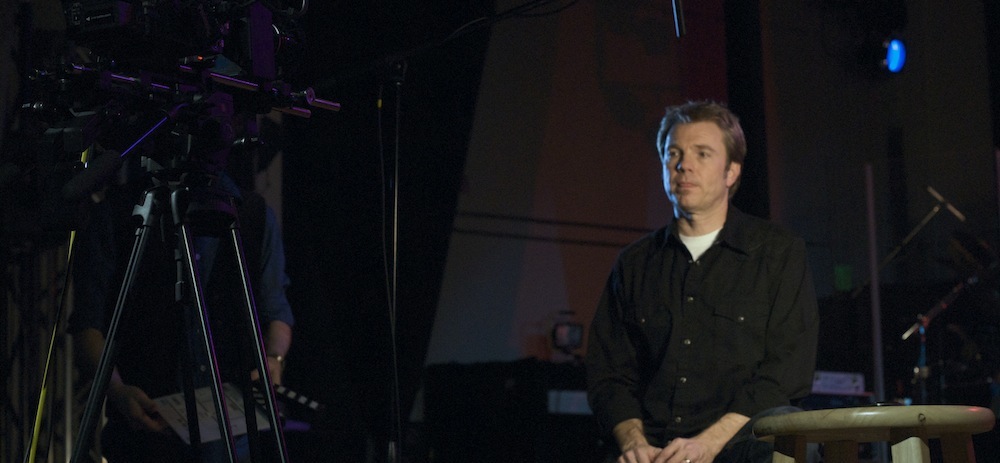Testimonies are something I’ve done a lot of over the years. I got my start in filmmaking by doing videos for the church I grew up in, and it quickly became such a passion for me that I knew what I wanted to do for the rest of my life. One of the benefits of learning filmmaking at a church is that, almost more than any other venue, emotion is everything. Ministry itself is very concerned with the trials we face, and often a person’s individual story is the best way to deal with these tough topics. If you can find a person with the right story, and one who is willing to be open and genuine about their fears, doubts, and failures during whatever event the story concerns, then you can connect with an audience in a way that no scripted piece ever could.
These deeply personal stories don’t just work well in the church arena; non-profits in general benefit greatly from a personal story, but so does pretty much any company that has an impact on people’s lives. I did a video not too long ago for a family-run financial planning firm that had a great outcome when we decided to go with a more personal angle on how the owner got into the business so that he could help people make smart decisions to take care of their families during their lives and after they were gone. Keep this in mind; I’m going to be mostly talking about this from a church testimony perspective, but it doesn’t just apply there. Even basic client testimonials are essentially personal stories about how much a customer liked a product and why.
Write It Like a Movie?
A lot of places (including many well-known churches) follow a process like this for their testimonies: They identify the person and situation that fits their topic. The person writes the story down so that the video team can identify the major timeline and thematic elements. They outline the story and plan it out, much like a screenwriter would – they craft the story for maximum emotional impact. They script out the testimony and plan the b roll shots to accompany each section line. The subject usually memorizes the story or reads it from a teleprompter. All of these elements and all of the planning create a very emotionally engaging testimony.
I think this is the wrong way to go about telling the story.
When you film a personal testimony this way you remove the most important part: the personal element. It’s no longer the story of the person on camera – It becomes the filmmaker’s story. A personal story should be someone sharing what they went through, how they felt, what they experienced, and what they learned. It should come from their point of view. It should be their words. It should be their feelings. It’s their story, not the filmmaker’s. It loses the sense of “genuine”, and may as well be a fiction or a parable. To me, it almost feels manipulative. Coming from the church perspective, what gives the filmmaker the right to tell someone how to share their story of God’s presence in their life? From a corporate/commercial perspective, is it really a client testimonial if the director or company telling them what they should say? Isn’t the whole idea of a testimonial that it’s what they think?
Let Them Tell Their Own Story
So, how do I think testimonies should be approached? With ample time, lots of patience, well thought-out questions, and well-crafted editing. Plan lots of shoot time. Give the person the chance to tell the whole story, from the beginning. Let them tell it twice. I always told my subjects, “Don’t worry about making it short or fitting a time requirement. That’s my job. Your job is to tell me what happened, with every detail you’re comfortable telling me, in whatever order you feel like telling it. I’ll worry about make it all work together.” I ask the storyteller to give us the facts, events, and the timeline of what happened, but also to really focus on how they felt and what they were thinking each step of the way; this is the part that makes it personal and intimate.
As I listened to the story being told, I keep a running list of what narrative questions I have from a viewer perspective. After they’ve gotten through the whole story once or twice, I start to ask those questions. I’m very careful not to ask leading questions. I might ask questions that get the storyteller to address more directly whatever topic is being covered with this video, but I don’t want to put my words or thoughts into the storyteller’s mouth.
[quote_left] “Tell me more about…” “How did you feel during…” “What impacted you the most about….” “What went through your head when…” “What did you learn from…” “How has your perspective changed since…” [/quote_left]
I keep asking questions until all of my earlier curiosities have been addressed. These questions help clarify the events they told earlier. They provide an emotional framework that can be weaved throughout, and give the viewer a look into the storyteller’s mind, making it much easier to empathize.
Then I sit down to edit: I put everything in a logical order and start cutting down, over and over, pass after pass, until it’s tightly edited – clear and concise. All of this material can certainly make it a lot harder to edit, but that’s a worthwhile trade for having a truly genuine story. It really is their story when the finished product is shown. It’s not contrived emotion or moments for emotional impact’s sake, or them saying what I want them to say to fit my purpose. You’d be surprised how much sincerity can come across in the expressions and inflection of the storyteller if they are saying their own words; the whole piece is stronger when it’s their words.
It’s a Documentary, Not an Adaptation
There’s nothing wrong with using the amazing filmmaking techniques we have at our disposal to help tell a story. The line that this “scripting” of personal stories crosses has to do with the difference between a “based on a true story” narrative film and a full-fledged documentary. If I’m watching a “true story” adaptation, I know liberties have been taken. The story has been crafted for best narrative effect, the shots have been planned out, the script has been tweaked for the best way to communicate to the audience, and I know I’m not watching something real. With a documentary, my expectations are different: I expect reality. It may not be unbiased, but it the bias comes out in the editing, not the interviews. What’s being filmed had better be real and honest, not scripted. Personal stories are documentaries, not movies. To create it like a movie but present it like a documentary is a misrepresentation. Create appropriately.
When it all comes down to it, I have to remember that it’s their story, and I hope everyone I’ve ever filmed this way feels like they own their story when I’m done.




07/11/2013, 12:10 pm
Very good advice and insight. Thanks.
03/05/2018, 12:01 am
Wow thanks for this! I edit a lot of testimonies too and I’m shy so I’m terrible when it comes to interviewing people, if I am the one needing to do it (not often). I really appreciate the advice on how to ask questions.